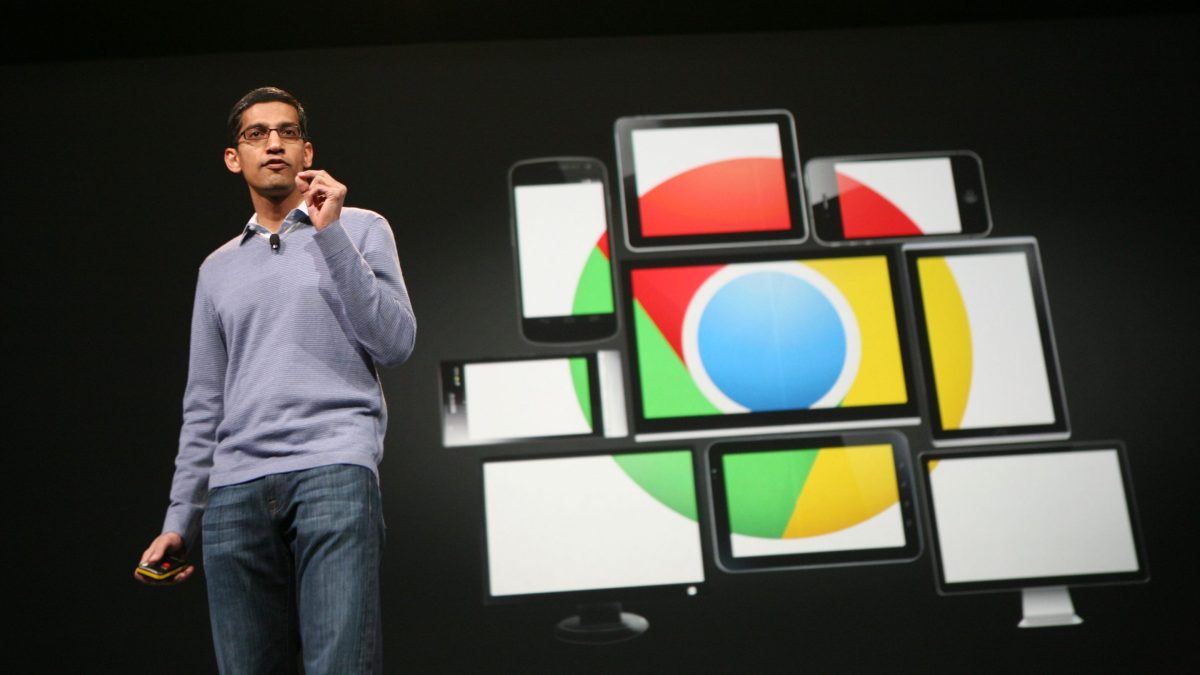
As the tech industry has been expecting for days, the Department of Justice has formally submitted a plan for breaking up Google.
The DOJ filed its proposal late Wednesday asking a U.S. District Court in D.C. to force the company to sell off its Chrome web browser.
It stopped short of asking the same of the Android mobile operating system. Instead, DOJ wants the court to limit how much Google can favor its own services in the O.S.
The proposal also takes on how Google has been doing AI.
The DOJ wants the court to stop Google from “manipulating the development and deployment” of AI solutions and other technologies “that provide the most likely long-term path for a new generation of search competitors.”
The DOJ’s complaint about Google and AI is kind of all about the Chrome web browser too. It is the most popular browser, and it directs every search through Google’s search engine. So does the second most popular web browser, Apple’s Safari.
“That’s a pretty tried and true monopoly strategy,” said Adam Epstein, CEO of the search advertising firm AdMarketplace. He said Google enjoys roughly 90% of search engine market share. The reason it’s an AI problem is every time you look up the name of that one actor in that TV show or how to tie a double Windsor, you’re making Google’s AI program, Gemini, smarter.
“They can continue to improve their own search AI agent and keep searches away from their competitors,” Epstein said.
That’s why the DOJ wants to limit Google’s ability to manipulate AI development, said Chirag Shah, a professor at University of Washington’s Information School.
“Getting that kind of diffused a little bit will at least give some competitors a fighting chance,” Shah said.
Google called the DOJ’s proposal a “radical interventionist agenda” in a statement. The company said the changes would chill its investment in AI and endanger user privacy. Shah is not convinced.
“In fact, there are a number of reasons to believe that it would be actually better for customers if Chrome were to be divested,” Shah said.
Google has promised an alternative solution, and Information Management Professor Thomas Davenport of Babson College thinks the company might have a point.
“And so, it’s unfair to Google, really impossible, to expect them to do search without being able to use AI freely,” Davenport said.
And, he said, Google controls so much market share in part because people like it.
“There are a variety of other search engines, but people just don’t really want to use them,” Davenport said.
Epstein said he expects the DOJ effort will change the search market, and today’s single-search-engine reality will feel quaint in a few years.
There’s a lot happening in the world. Through it all, Marketplace is here for you.
You rely on Marketplace to break down the world’s events and tell you how it affects you in a fact-based, approachable way. We rely on your financial support to keep making that possible.
Your donation today powers the independent journalism that you rely on. For just $5/month, you can help sustain Marketplace so we can keep reporting on the things that matter to you.






